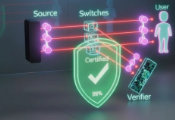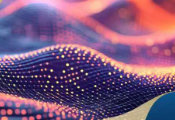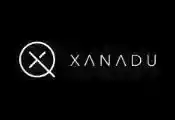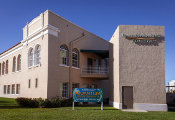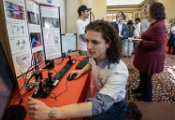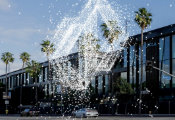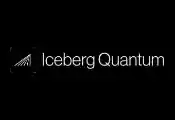Enabling Distributed Quantum Sensors for Simultaneous Measurements in Distant Places
January 22, 2024 -- A research team has succeeded in implementing a distributed quantum sensor that can measure multiple spatially distributed physical quantities with high precision beyond the standard quantum limit with few resources. Their findings are published in the journal Nature Communications.
Sharing the exact time between distant locations is becoming increasingly important in all areas of our lives, including finance, telecommunications, security, and other fields that require improved accuracy and precision in sending and receiving data.
Quantum phenomena such as superposition and entanglement can be used to more precisely measure the time of different clocks in two distant spaces. Similarly, if you have two physical quantities, one in Seoul and one in Busan, you can share the entanglement state in Seoul and Busan and then measure the two physical quantities simultaneously with greater precision than if you measure the physical quantities in Seoul and Busan separately.
There is an expectation that quantum sensors will enable ultra-precise measurements that are not possible with classical sensors, and 'distributed quantum sensors' are systems that can measure distributed multiple parameters over a large area with higher precision than conventional sensors.
A Korea Institute of Science and Technology (KIST) research team has experimentally demonstrated that distributed quantum sensing systems can be used to measure phenomena with the highest precision achievable with quantum mechanics in situations where the objects to be measured are distributed over a large area.
The team experimentally generated a superposed maximum entanglement state that simultaneously exists in four spaces far apart from the Bell state, a quantum entanglement state, and applied it to reach the Heisenberg limit, the limit of quantum mechanical precision.
"We look forward to expanding into practical technologies such as global time synchronization and ultra-microscopic cancer detection by pioneering the core source technology for distributed quantum sensing, which enables measurements beyond the standard quantum limit with few resources," said Dr. Hyang-Tag Lim of KIST, who led the study.
Dr. Hyang-Tag Lim and his team at the Center for Quantum Information worked on this research in collaboration with leading domestic and international research institutes such as Chung-Ang University, the Korea Research Institute of Standards and Science (KRISS), the Agency for Defense Development (ADD), and the Oak Ridge National Laboratory (ORNL).


